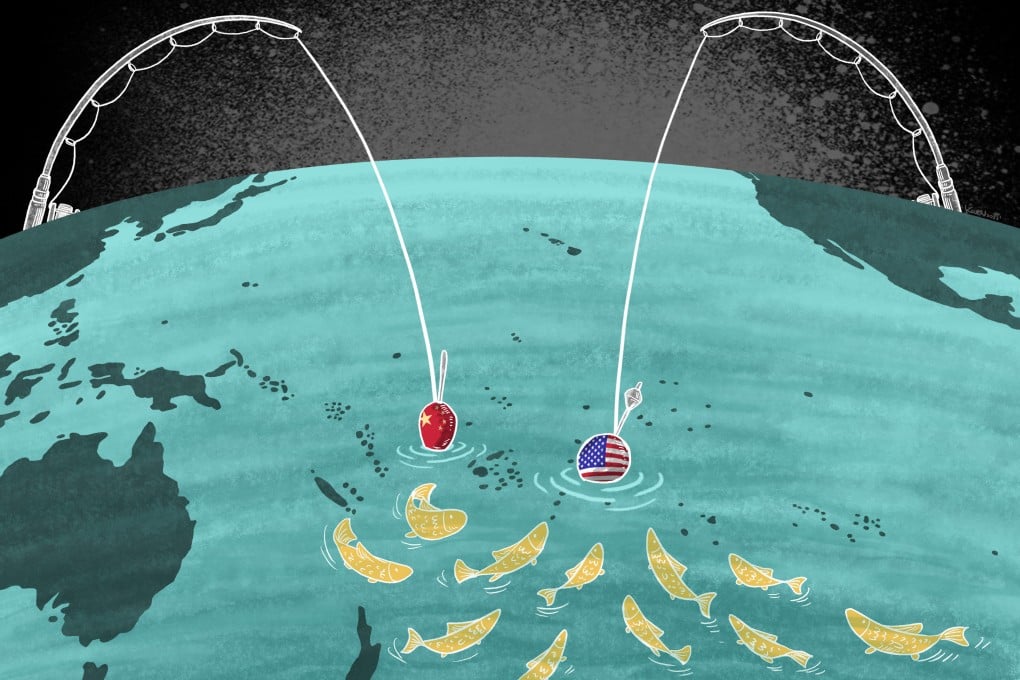Advertisement
US tries to reel in Pacific islands as China tests new waters
- Washington plans new embassies and US$810 million strategy for Pacific as island nations become key arena for competition
- Despite ‘substantial gains’ in region, Beijing must avoid ‘premature lurches’ in building up security and military presence, observer says
Reading Time:6 minutes
Why you can trust SCMP
47

Dewey Simin Singapore
At the Tongan capital of Nuku’alofa earlier this month, the United States flag was hoisted during a ceremony to mark the opening of a new American diplomatic outpost in the Pacific islands.
Tonga’s acting foreign minister, Samiu Vaipulu, called the occasion “historic” and “long awaited”.
“Today marks a milestone in the long-standing and strong relations between the Kingdom of Tonga and the United States of America,” the Tongan foreign ministry said.
Advertisement
Washington said the opening of the embassy was symbolic of a renewal of ties and underlined the strength of its commitment to bilateral relations and partnerships in the Indo-Pacific region.
The United States also plans to set up embassies in Vanuatu and Kiribati as the Pacific islands become a key arena of strategic competition between Beijing and Washington.
Advertisement
While last week’s cancellation of US President Joe Biden’s trip to the Papua New Guinea raised some questions about Washington’s commitment, observers said the increased US engagement with Pacific island nations in recent months showed the region’s growing importance in American foreign policy, and Beijing would have to do more to build trust to maintain its influence there.

Advertisement
Select Voice
Select Speed
1.00x